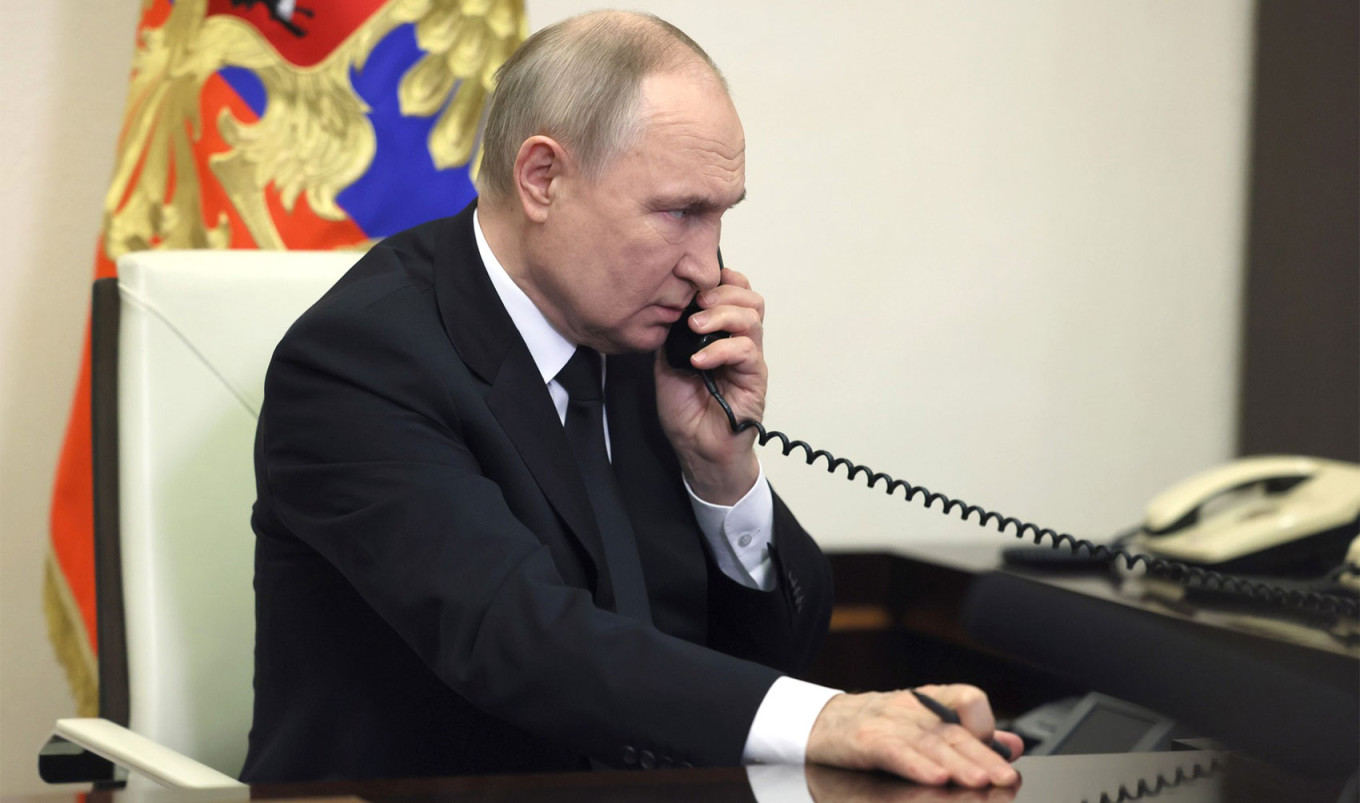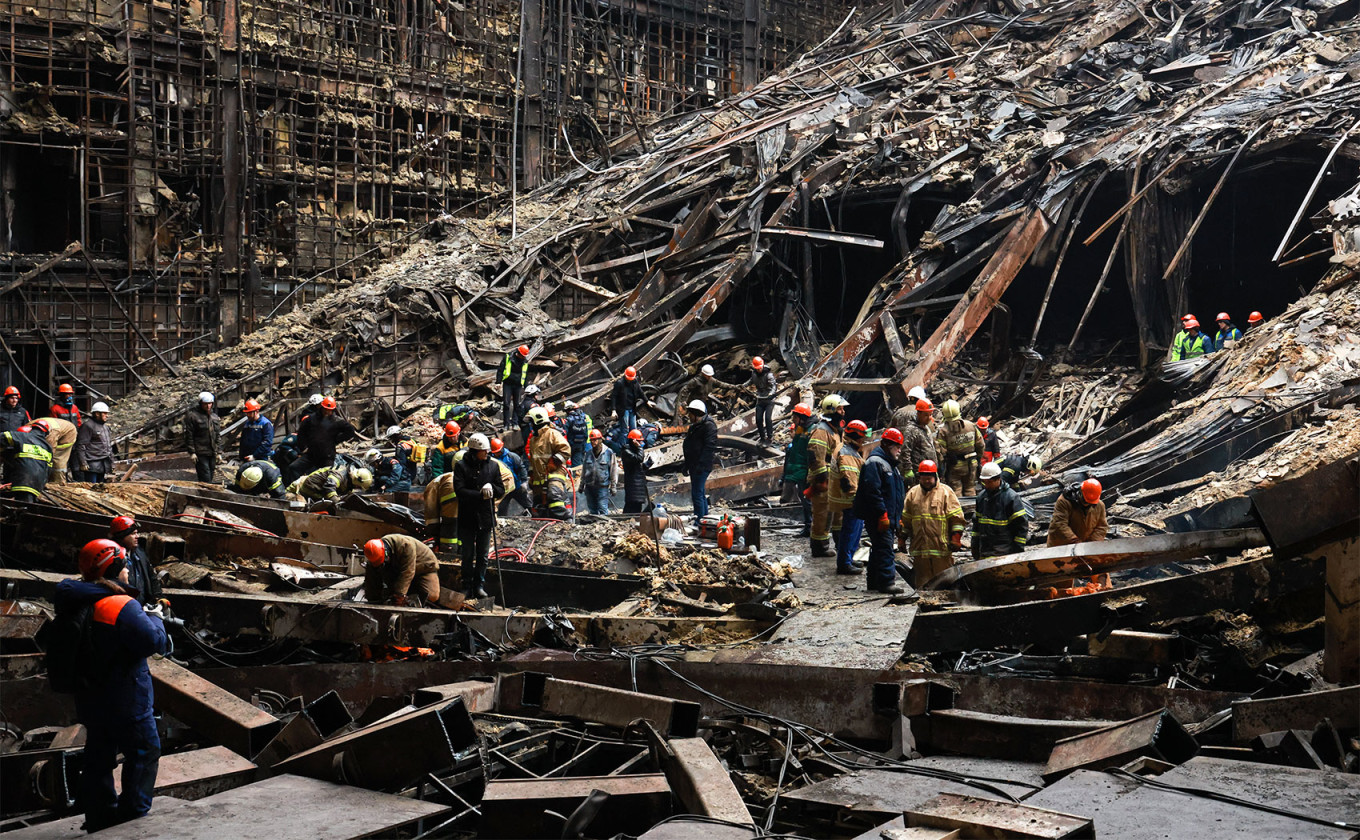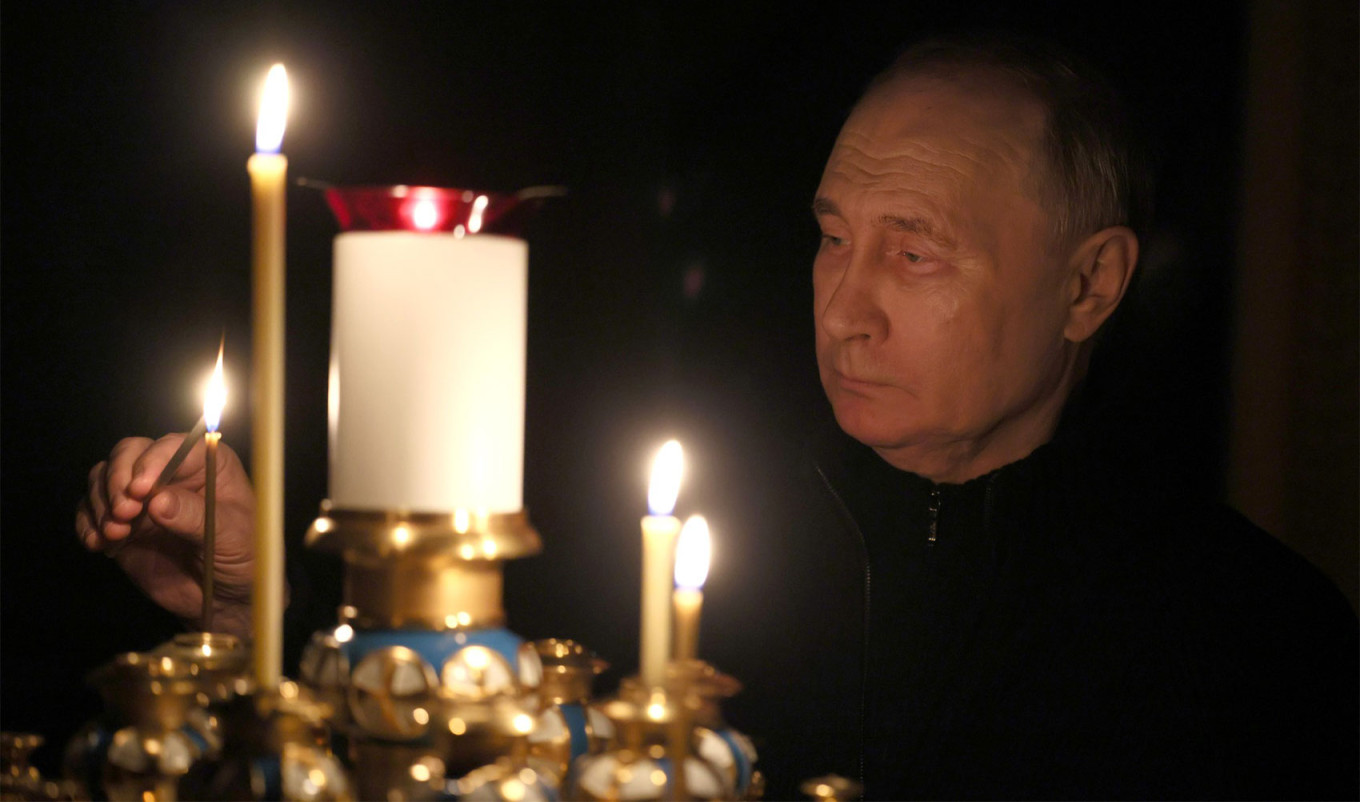On March 7, U.S. officials warned the Russian government that they had information about a planned terrorist attack possibly targeting concerts in Moscow. Fifteen days later, camouflaged gunmen attacked the Crocus City Hall concert venue near Moscow, killing at least 137 people, with the Islamic State (IS) jihadist group claiming responsibility.
The deadliest attack in Russia since the 2003 Beslan school siege has led to criticism of Russia’s “security theater” and raised questions about what Putin and the security establishment were doing at the time.
Here is a timeline of the Russian president’s known activities before, during and after the attack:
March 7: The U.S. Embassy in Moscow issues a warning of reports that “extremists have imminent plans to target large gatherings in Moscow, to include concerts” and advises its citizens to avoid large gatherings over the next 48 hours. U.S. officials also notify the Russian government per their longstanding “duty to warn” policy.
Earlier in the day, the FSB announced it had killed IS militants who were planning a “terrorist attack” on a Moscow synagogue.

March 19: Addressing FSB chiefs, Putin congratulates them for their competence and “achievements in the fight against terrorism and extremism.” He acknowledges the U.S. warning, calling it “provocative” and “outright blackmail…to intimidate and destabilize our society,” stressing that the security agency’s work is focused on Ukraine.
March 21: Putin is declared the winner of the presidential election after a vote the Kremlin calls “absolutely flawless” but is criticized by the West as undemocratic. In his victory speech, he speaks about the war in Ukraine and “strengthening defense capacity and the military.”
March 22: At about 8:15 p.m., a group of gunmen enter Crocus City Hall, which has a capacity of over 6,000, before the start of a sold-out concert. They start shooting at people indiscriminately before setting the building on fire and fleeing the scene.
Several hours later, IS claims responsibility for the attack, which U.S. officials confirm.
Almost three hours after the start of the attack, the Kremlin announces that Putin has been receiving information and giving instructions for how to proceed. According to anonymous sources cited by The Insider, television channels are repeatedly prepared to air a statement from Putin, but he does not appear.

March 23: At 1:45 a.m., Deputy Prime Minister Tatyana Golikova announces that Putin has wished those injured well and thanked the medical staff assisting them.
In the morning, the Kremlin announces that Putin has been receiving condolences from leaders of countries “friendly” to Russia, but he still does not appear in public.
In the afternoon, nearly 20 hours after the attack ended, the Kremlin releases a pre-recorded video statement by Putin on the “barbaric terrorist act,” where he says the four shooters and seven accomplices have been detained. He does not mention IS, instead saying the shooters were fleeing to Ukraine, and declares March 24 a national day of mourning.

March 24: Kremlin journalist Pavel Zarubin posts a video showing “Putin’s work in the minutes and hours after the terror attack.” It consists of brief footage of him answering a phone call at his desk, followed by clips of his televised statement aired hours after the attack from a different camera angle.
Putin is shown visiting an Orthodox church at his official residence outside Moscow and lighting candles for the attack’s victims.
… we have a small favor to ask.
As you may have heard, The Moscow Times, an independent news source for over 30 years, has been unjustly branded as a “foreign agent” by the Russian government. This blatant attempt to silence our voice is a direct assault on the integrity of journalism and the values we hold dear.
We, the journalists of The Moscow Times, refuse to be silenced. Our commitment to providing accurate and unbiased reporting on Russia remains unshaken. But we need your help to continue our critical mission.
It’s quick to set up, and you can be confident that you’re making a significant impact every month by supporting open, independent journalism. Thank you.